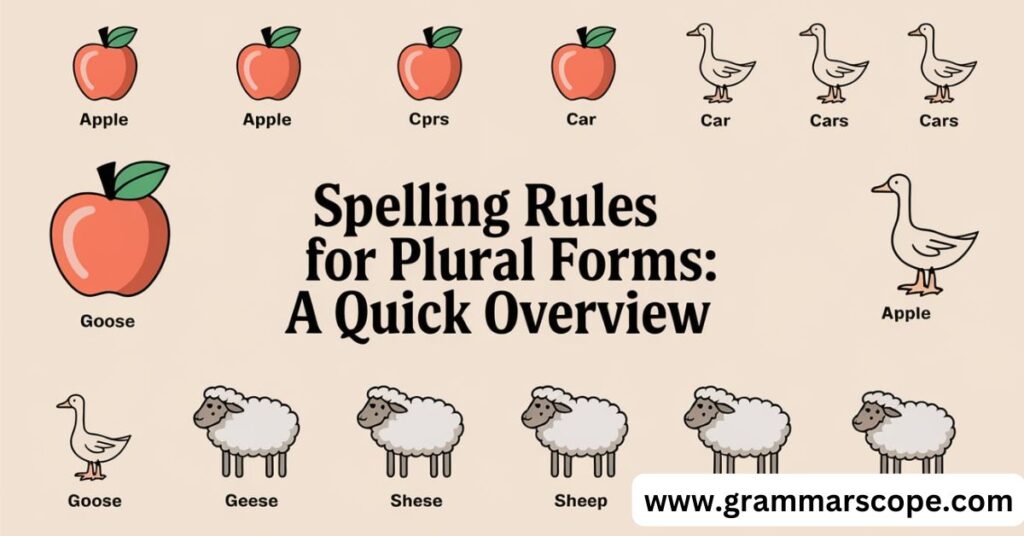The English language often surprises learners with its quirks, and spelling rules are no exception. One such puzzle is the plural form of “journey.” Have you ever hesitated, wondering whether it’s “journeys” or “journies”? You’re not alone. This article will unravel the mystery of the correct plural form and help you avoid common spelling errors in your writing.
The journey to mastering English grammar often begins with understanding its rules and patterns. While English has its complexities, it also has logical structures that make sense once decoded. By the end of this article, you’ll not only understand why “journeys” is correct but also gain clarity on similar pluralization rules. Whether you’re writing a personal memoir about your literal journey or crafting a metaphorical tale of growth, you’ll have the confidence to use the right term.
In this guide, we’ll explore literal journeys, metaphorical journeys, and the importance of writing accuracy. We’ll also provide real-life examples, pro tips, and practical scenarios to solidify your understanding of pluralization.
Understanding the Plural Form of “Journey”

The plural form of “journey” is “journeys.” Why? English grammar has a clear rule for words ending in “y.” If the “y” is preceded by a vowel, as in “journey,” simply add “s.” This is known as the vowel before y rule. This straightforward rule eliminates the confusion between journeys and journies.
Scenario Example:
You’re drafting an email to a colleague about shared experiences:
“Hi Jessica,
I wanted to thank you for sharing your travel journeys with the team. Your stories inspired us all to explore more destinations!”
Literal Journey
A literal journey refers to physical travel from one place to another. Whether it’s a family road trip or a solo adventure across continents, the word “journeys” captures multiple trips.
Scenario Example:
Imagine writing a blog post about your travels:
“My recent journeys through Europe taught me the beauty of cultural diversity. Each destination offered something unique, from Paris’s art galleries to Rome’s historical landmarks.”
Metaphorical Journey
A metaphorical journey, on the other hand, symbolizes growth, learning, or transformation. This type of journey often appears in literature, personal development narratives, and motivational speeches.
Scenario Example:
In a professional LinkedIn update:
“My career journey over the past decade has been a story of resilience and growth. These collective journeys have shaped me into a more empathetic leader.”
Why “Journies” is Incorrect
The plural “journies” is a common mistake, but it’s grammatically incorrect. English follows specific rules when converting singular nouns ending in “y” to their plural forms. If the “y” comes after a consonant, as in “city,” change the “y” to “i” and add “es” (e.g., cities). However, for “journey,” the “y” follows a vowel, so only “s” is needed.
The Vowel Before Y Rule
Understanding the vowel before y rule is crucial for mastering English pluralization. Here’s how it works:
- Words like “journey,” “key,” or “boy” add “s” to form their plural (e.g., journeys, keys, boys).
- Words like “city” or “baby” follow a different rule, changing “y” to “i” before adding “es.”
This distinction simplifies the pluralization process and prevents spelling errors.
Spelling Rules for Plural Forms: A Quick Overview

- Words ending in vowel + y: Add “s” (e.g., journeys).
- Words ending in consonant + y: Change “y” to “i” and add “es” (e.g., cities).
- Exceptions: Some words, like “money,” have irregular plural forms based on context.
Common Mistakes in Plural Forms
Mistakes like “journies” stem from overgeneralizing rules. It’s vital to understand the specific guidelines for each case to avoid such errors. Mastery of plural forms ensures writing clarity and professional communication.
Scenario Example:
In an academic paper:
“These journeys represent pivotal moments in human history, influencing trade and cultural exchange.”
Journey Plural Usage in Context: Real-Life Examples
Example 1: Career Journey
Your professional growth over time is a career journey. Multiple career shifts or paths can be described as career journeys.
Scenario Example:
In a cover letter:
“My diverse career journeys have equipped me with a unique blend of skills, ranging from project management to creative problem-solving.”
Example 2: Spiritual Journey
A spiritual journey involves personal introspection and growth. Documenting multiple phases of this experience can be termed spiritual journeys.
Scenario Example:
In a personal journal:
“Reflecting on my spiritual journeys, I’ve learned the importance of mindfulness and inner peace.”
Why Accurate Pluralization Matters in Writing
Correct pluralization enhances writing accuracy and demonstrates your command of English grammar. It avoids distractions caused by common spelling errors, keeping readers focused on your message. Whether crafting professional emails or creative stories, proper grammar builds credibility.
Improve Your Writing Skills: Tips for Correct Plural Usage
- Learn the Rules: Familiarize yourself with pluralization guidelines, especially for tricky endings like “y.”
- Practice Regularly: Write examples of plural forms to reinforce your understanding.
- Use Tools: Grammar checkers can catch errors but always review manually for accuracy.
Pro Tips: The Most Important Paragraph
Understanding the vowel before y rule is crucial because it applies to many words beyond “journey.” Mastery of this rule eliminates confusion in similar cases, such as “key” and “toy.”
Pro Tip: Always double-check words ending in “y” to confirm whether they follow the vowel or consonant rule. This ensures flawless spelling and boosts your confidence in formal writing.
Frequently Asked Question
Which is correct, journeys or journies?
The correct plural form is journeys.
In English grammar, nouns ending in “y” follow specific rules for pluralization. If the “y” is preceded by a vowel, like in the word journey, simply add an “s” to make it plural (journey → journeys). However, if the “y” is preceded by a consonant, you change the “y” to “i” and add “es” (e.g., city → cities). Since “journey” has a vowel (e) before the “y,” the correct plural is journeys, not journies.
Which is the correct plural form?
The correct plural form is journeys.
This follows a standard rule in English grammar: when a noun ends in “y” with a vowel right before it (like the “e” in journey), you simply add an s to form the plural. For example, journey becomes journeys. The incorrect spelling, journies, likely arises from confusion with nouns that end in “y” preceded by a consonant (e.g., city → cities). To avoid spelling errors, remember to check the vowel before the “y” and apply the vowel before y rule.
Is it career journeys or journies?
The correct term is career journeys.
In English grammar, the plural of “journey” is formed by simply adding -s because “journey” ends with a vowel (e) before the letter y. Therefore, the plural becomes journeys and not “journies.” Using “journies” would be considered a spelling error.
For example:
- “Over the years, Sarah and John shared their career journeys with aspiring professionals.”
- “Career journeys often include moments of growth, setbacks, and triumphs.”
Always use career journeys to ensure your writing is clear and grammatically correct.
How do you pluralize a plural word?
You generally don’t pluralize a plural word. Instead, you refer to multiple groups of plural items, or plural forms of words when necessary. For example, you would say “career journeys” but not “career journies.” The plural form of a plural word remains in its original plural form unless referring to different groups or types.
Conclusion
Mastering the difference between “journeys” and “journies” is a small but impactful step in improving your writing accuracy. By understanding the vowel before y rule and applying proper pluralization techniques, you’ll avoid common spelling errors and communicate more effectively. Whether you’re narrating a literal journey or reflecting on an emotional journey, the right words make all the difference. Happy writing!

Emma Olivia is an experienced blogger and the creative mind behind Grammar Scope. With a passion for language and years of writing expertise, she crafts engaging, informative content that simplifies grammar and writing tips for readers worldwide. Emma’s dedication to clear communication and love for the written word shine through every article she publishes, making Grammar Scope a trusted resource for language enthusiasts and learners alike.







